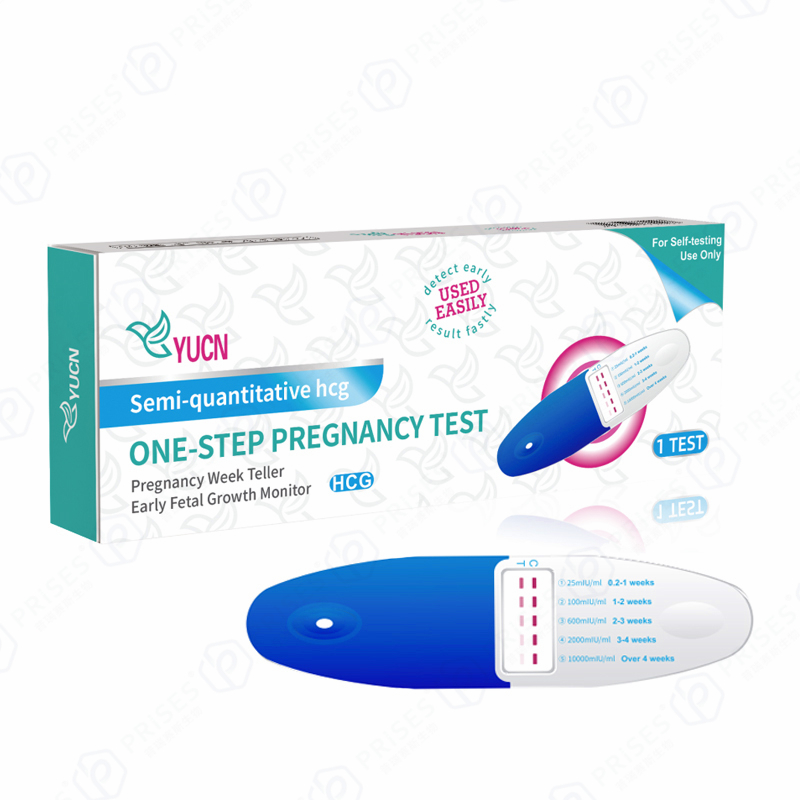Oct . 04, 2024 12:32 Back to list
Top Manufacturers of Hepatitis B Test Kits and Their Key Features
The Role of Hepatitis B Test Kit Manufacturers in Global Health
Hepatitis B remains a significant public health concern worldwide, with millions of people infected annually. This viral infection, which primarily affects the liver, can lead to chronic disease and increase the risk of developing liver cancer. As a result, early detection and timely intervention are critical, making the role of hepatitis B test kit manufacturers vital in the fight against this disease.
Understanding Hepatitis B
Hepatitis B is caused by the hepatitis B virus (HBV), which is transmitted through contact with infected bodily fluids. Although vaccines are available, global vaccination coverage is still suboptimal in many regions. Consequently, many individuals remain unaware of their infection status, which can lead to severe health complications if left untreated. Testing is essential for diagnosing hepatitis B and determining appropriate treatment regimens.
The Need for Reliable Test Kits
Test kits are the frontline tools in identifying HBV infections. Hepatitis B test kit manufacturers play a crucial role by developing and producing diagnostic tools that can accurately detect the virus. These test kits typically include assays that can identify HBV antigens and antibodies in a blood sample. There are different types of tests available, including rapid diagnostic tests (RDTs), enzyme-linked immunosorbent assays (ELISAs), and polymerase chain reaction (PCR) tests, each catering to different needs and situations.
Reliable testing is essential for establishing a diagnosis, guiding treatment decisions, and implementing preventative measures. However, the effectiveness of these tests largely depends on the quality of the kits produced. Manufacturers must adhere to stringent regulatory standards and invest in research and development to ensure their products meet global health needs.
Key Manufacturers and Technological Advancements
hepatitis b test kit manufacturers

Several leading manufacturers are recognized for their contributions to hepatitis B testing. Companies such as Roche, Abbott, and Bio-Rad have developed sophisticated test kits that not only provide accurate results but also streamline the testing process, making it accessible in various healthcare settings.
Recent advancements in technology have transformed the landscape of hepatitis B testing. The development of point-of-care testing (POCT) devices allows for rapid results in non-laboratory settings, essential for rural or resource-limited environments. These innovations facilitate earlier diagnosis, which is crucial for the management of hepatitis B and reducing transmission rates.
Another significant advancement is the integration of molecular testing methods. PCR tests enable healthcare providers to measure the viral load in infected individuals accurately, which is essential for determining the stage of the infection and monitoring the efficacy of treatment. Hepatitis B test kit manufacturers continually innovate to refine these technologies, ensuring they are user-friendly and cost-effective.
Global Impact and Accessibility
Despite the importance of hepatitis B testing, access to quality test kits remains a challenge in many low and middle-income countries. The World Health Organization (WHO) emphasizes that expanding access to hepatitis B testing is necessary for effective disease management. Test kit manufacturers are increasingly focusing on affordable solutions that maintain high accuracy standards, which can help bridge the gap in healthcare disparities.
Public-private partnerships play a crucial role in this endeavor. Collaborations between governments, non-governmental organizations, and private manufacturers can enhance the distribution and accessibility of test kits in underserved communities. Efforts to raise awareness about the importance of hepatitis B screening are equally essential, as many individuals may not seek testing due to stigma or lack of information.
Conclusion
Hepatitis B test kit manufacturers are vital players in the global response to hepatitis B. Through innovation and commitment to quality, they provide the necessary tools for early detection and management of this virus. As the world continues to confront public health challenges, these manufacturers will remain at the forefront, working to ensure that everyone has access to accurate and affordable testing solutions. Their contributions not only help save lives but also strengthen global health systems in the ongoing battle against infectious diseases.
-
Dengue NS1 Rapid Diagnostic Test Kit
NewsMar.07,2025
-
Dengue NS1 Rapid Diagnostic Test Kit
NewsMar.07,2025
-
Dengue NS1 Rapid Diagnostic Test Kit
NewsMar.07,2025
-
Transferrin Rapid Test Cassette Tumor Marker TF Card
NewsMar.07,2025
-
Malaria Pf Pan Rapid Diagnostic Test Kit
NewsMar.07,2025
-
malaria pf / pan ag rapid test
NewsMar.07,2025

